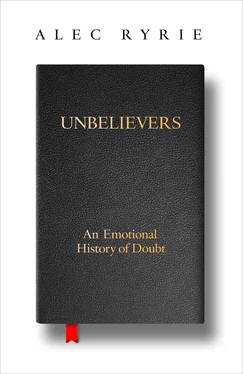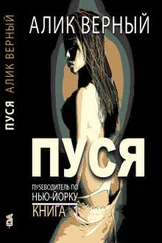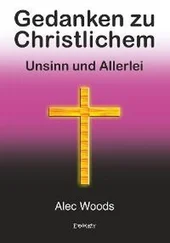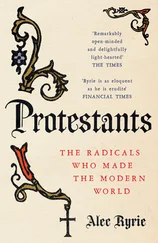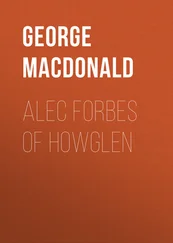So far I have been tossing around words like ‘atheist’ and ‘unbeliever’ as if their meanings are obvious and equivalent, which they are not. Before we go any further it is as well to be clear what we are talking about.
Nowadays ‘atheism’ simply means the claim that there is no God. The word has included this ‘hard’ or philosophical sense from its beginnings, but only as part of a much wider range of meaning, which we might do well to recover. The Greek word ἄθεος ( atheos ) means, literally, without God or gods. It was a term of abuse, applied in ancient times to people like Socrates, condemned for his supposed rejection or neglect of socially established religious norms. Early Christians, who would not acknowledge the Graeco-Roman gods, were sometimes also called ἄθεοι, a charge they indignantly denied. But the word atheos was scarcely ever used in Latin in ancient times. When the Greek word was translated into Latin, impius , ‘impious’, was usually felt to be the nearest synonym. The word ἄθεοι occurs only once in the Bible, where it was translated into Latin as sine Deo , ‘without God’. Only with the rediscovery of Greek in the Christian West during the Renaissance did the word come into widespread use – transliterated into Latin as atheos in the early sixteenth century, and then very quickly spreading into European vernaculars: Italian ateo , German Atheist , French athée .[16] It arrived late in English, via French, in 1553.[17] Its range of meaning was still much wider than ‘hard’ atheism. In the 1540s the English scholar John Cheke wrote a Latin treatise in which he lambasted
those who … live as if God were altogether without care of them; and who neither consider with themselves, nor care whether there be a God or no, or whether he has any Administration or Foresight of human Affairs … The Scriptures mark them out under several Titles, but it is most agreeable to our present purpose to call them ἄθεοι.[18]
We might question whether such people are atheists or if the nineteenth-century term ‘agnostic’ would fit better, but the point is that Cheke was not talking about metaphysics at all. His targets were, as we might say, the godless, regardless of what beliefs they formally professed. This was the standard usage until the eighteenth century and even beyond. As well as ‘contemplative’ or ‘speculative’ atheists – philosophical deniers of God – there were ‘practical’ atheists, who claim to believe but live as though they do not. As the seventeenth-century essayist Thomas Fuller put it, the ‘practical’ atheist is not someone who ‘thinks there is no God’, but someone who ‘thinks not there is a God’.[19]
All this made atheist a usefully elastic term of abuse. It was like the word fascist in modern, everyday use: a word with a broad but not limitless range of meanings, whose use typically marks the moment when an argument descends into name-calling.[20] Sometimes atheist was plainly stretched too far – preachers who claimed that all sinners were atheists, or that disputing one specific Christian doctrine was tantamount to atheism, were playing polemical games rather than advancing serious definitions.[21] Even so, this broad sense of the word is more useful than the narrow modern one, for it takes us away from the abstractions of metaphysical definitions into the everyday reality of how religious cultures thrive, decay or dissolve.
My subject in this book, then, extends beyond ‘contemplative’ atheism into the penumbras of doubt and unbelief. As a point of metaphysics, whether or not you believe there is a deity is interesting. But in itself it has no more consequences than whether or not you believe there are other universes parallel to our own. As John Gray puts it, someone with ‘no use for the idea of God … [is] in truth an atheist’, whatever such a person claims to believe or disbelieve.[22] ‘Practical atheist’ remains a sensible term for those whose formal belief in God has no tangible effect on their lives – who observe no religious practices, adhere to no specifically religious ethics, and participate in no avowedly religious community. Our subject is not only those who abandon religious beliefs and change their lives as a result, but also those who abandon religious living and whose residual religious beliefs consequently wither.
In other words, I make no apology for using words – ‘atheist’, ‘sceptic’, ‘unbeliever’ – which describe what people are not . Our subject is a disappearance: the evaporation of a once very widespread religious culture. Those curmudgeonly terms are inadequate to describe what, if anything, has taken its place, but that will have to wait until we have a clearer idea of how the disappearance happened. The mystery we are addressing is how believers became unbelievers: and if the word unbelief sounds like it still has belief at its core, well, I think it does.
Before we embark for the Middle Ages, some readers may have suspicions about the book’s scope, and about its agenda.
The book’s scope is unashamedly Eurocentric and Christian-centric, with a couple of small but important supporting roles played by European Judaism. Within that frame, it focuses disproportionately on the Protestant world and in particular on England, which is almost the exclusive focus of a couple of crucial chapters. This partly reflects my own historical specialism, but is also because, for reasons that I hope will become clear, I think the Protestant and English material is distinctively important as well as rich.
If this all feels parochial, that is because the phenomenon we are considering –Western secularism – is a parochial one. It is an offshoot of European Christendom, and in particular (so I will argue) of the Protestant world. In global terms, it is a counter-current, even an aberration. The dominant religious story of the past two centuries is surely the spread of Christianity and of Islam around the globe, a race in which those two hares have so far outpaced the secular tortoise that it takes a considerable act of faith to believe it might one day catch up. It is true that Western secularism has spread across the planet along with various other Western cultural exports, but there are relatively few countries beyond the North Atlantic region where it has really put down roots: Uruguay, perhaps, or the ‘Anglosphere’ outposts of Australia and New Zealand. There are certainly many other modern countries, such as Turkey, India or China, where the ‘secular’ is a potent social or political force, but these ‘secularisms’ are not at all Western in flavour. And in most of the world, including many of those countries, ‘religion’ in its many forms is going from strength to strength. The once-widespread assumption that Euro-American secularisation represented the probable future of humanity as a whole now looks much more like an expression of cultural imperialism than a level-headed forecast. So I am in no sense claiming to write a history of a universal or global phenomenon, but of a specific and local one – important in its own context, to be sure, especially for those of us who live in its homelands, but one that neither foreshadows any kind of global destiny nor is inscribed indelibly into Western culture itself.
As to my agenda: I am a historian of religion, and am myself a believer (and, in the interests of full disclosure, a licensed lay minister in the Church of England). When such a person starts writing about unbelief, it is fair to suspect a hatchet job. I hope that is not what I have done.
Of course, no one can be objective on this subject. We were born into this world and we’re going to die here; we all have a stake in this and are forced to make our wager. My own position is that I am a believer with a soft spot for atheism. I abandoned my youthful atheism for reasons that seem to me sufficient and necessary, but I still respect it. Like many of the characters in my story, I find an honest atheism much more honourable and powerful than the religion of many of my fellow believers. I hope readers will find that I have treated unbelievers with due respect – if not always with kid gloves. This is one reason why, throughout the book, I write about what ‘you’ or ‘we’ might have experienced as a medieval or early modern believer or unbeliever, rather than using the easy, distancing impassivity of pronouns like ‘one’ or ‘they’. I think it is worth the imaginative effort of trying to put ourselves in their place.
Читать дальше
